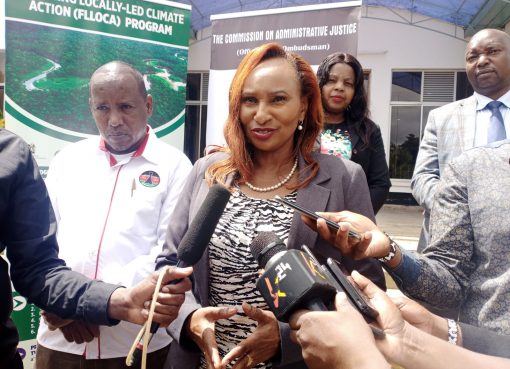
International Fund for Agriculture Development (IFAD) has in the last eight years invested 50 million US dollars in implementing sustainable projects in six counties in Upper Tana region.
The projects, implemented by the Upper Tana Resources Management Project in Murang’a, Meru, Tharaka Nithi, Nyeri, Kirinyaga and Embu, have targeted about 205,000 households, and aim to reduce rural poverty.
The agency’s Vice President Cornelia Richters said they were satisfied with the impact the projects have had on the residents and that they were ready to scale up funding to target more beneficiaries.
She said the agency will continue working closely with the Government to be able to initiate more development projects in the country and called on the said counties to explore more areas of collaboration that require funding.
The projects financed by the agency run from 2012 to 2020, and are in the areas of agriculture, water management, afforestation, green energy and value addition, among others.
“If we receive more requests, we shall continue implementing programmes in the rural areas to change livelihoods. We are satisfied with financial management and are exploring opportunities of partnership in the rural areas to change lives,” she said during a tour of some of the projects in Embu County on Wednesday.
Embu County Commissioner Esther Maina said the projects have helped in attaining sustainable food production and incomes for rural poor households as well as sustainable natural resources in the County.
She called on the agency to explore more areas of collaboration so as to continue changing the lives of those living in the rural areas.
Some of the projects initiated in the county are school greening programme and Bio Latrine gas plant in St. Ursula primary school, where each pupil has a five year old tree planted in the school.
It also recycles latrine waste to make biogas that they use as fuel to cook.
At Wamucii dairy farming self help group in Manyatta, the programme has empowered about 17 women who through an IFAD loan, have managed to secure a dairy cow each and has helped in their empowerment.
The beneficiaries called for more funding from the agency to expand their projects as well as address the various challenges that they face
By Muoki Charles



